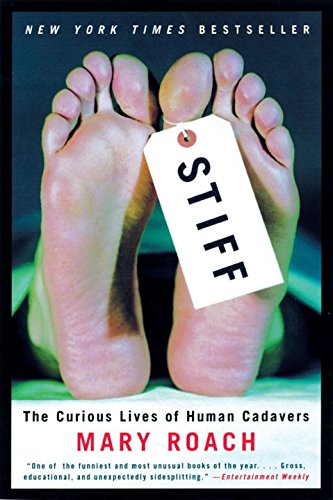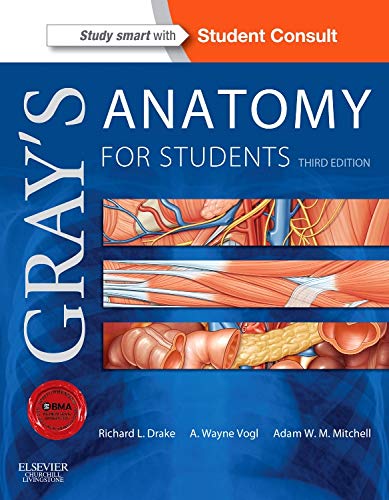(Part 2) Top products from r/physicaltherapy
We found 21 product mentions on r/physicaltherapy. We ranked the 68 resulting products by number of redditors who mentioned them. Here are the products ranked 21-40. You can also go back to the previous section.
21. Observational Gait Analysis
Sentiment score: 1
Number of reviews: 1
Used Book in Good Condition
 Show Reddit reviews
Show Reddit reviews22. Therapeutic Neuroscience Education (8748)
Sentiment score: 0
Number of reviews: 1
 Show Reddit reviews
Show Reddit reviews23. Kinesiology: The Mechanics and Pathomechanics of Human Movement
Sentiment score: 1
Number of reviews: 1
 Show Reddit reviews
Show Reddit reviews24. To Err Is Human: Building a Safer Health System (Quality Chasm)
Sentiment score: 0
Number of reviews: 1
National Academy Press
 Show Reddit reviews
Show Reddit reviews26. Kinesiology of the Musculoskeletal System - Elsevier eBook on VitalSource (Retail Access Card): Foundations for Rehabilitation
Sentiment score: -1
Number of reviews: 1
 Show Reddit reviews
Show Reddit reviews27. The Diving Bell and the Butterfly: A Memoir of Life in Death
Sentiment score: 1
Number of reviews: 1
The Diving Bell and the Butterfly
 Show Reddit reviews
Show Reddit reviews28. Stiff: The Curious Lives of Human Cadavers
Sentiment score: 1
Number of reviews: 1
W W Norton Company
 Show Reddit reviews
Show Reddit reviews29. Don't Worry, He Won't Get Far on Foot
Sentiment score: 1
Number of reviews: 1
Used Book in Good Condition
 Show Reddit reviews
Show Reddit reviews30. Neurological Rehabilitation: Optimizing motor performance
Sentiment score: 1
Number of reviews: 1
Churchill Livingstone
 Show Reddit reviews
Show Reddit reviews31. Gray's Anatomy for Students: With Student Consult Online Access
Sentiment score: 1
Number of reviews: 1
Medical Book
 Show Reddit reviews
Show Reddit reviews32. Manual Therapy for Musculoskeletal Pain Syndromes: an evidence- and clinical-informed approach
Sentiment score: 1
Number of reviews: 1
 Show Reddit reviews
Show Reddit reviews33. Trail Guide to the Body: How to Locate Muscles, Bones and More
Sentiment score: 1
Number of reviews: 1
 Show Reddit reviews
Show Reddit reviews35. Diagnosis and Treatment of Movement Impairment Syndromes
Sentiment score: 1
Number of reviews: 1
Mosby
 Show Reddit reviews
Show Reddit reviews36. Joint Structure and Function: A Comprehensive Analysis Fifth Edition
Sentiment score: 1
Number of reviews: 1
F A Davis Company
 Show Reddit reviews
Show Reddit reviews37. Rapid Interpretation of EKG's, Sixth Edition
Sentiment score: 1
Number of reviews: 1
The reader's rapid assimilation of medical concepts is the key to the continuing success of this best-selling book.
 Show Reddit reviews
Show Reddit reviews38. Stretching: 30th Anniversary Edition
Sentiment score: 0
Number of reviews: 1
Shelter Publications
 Show Reddit reviews
Show Reddit reviews



I recently underwent a similar change, having worked in outpatient orthopedics for 6-ish years (+lots of $$ spent on con-ed including manual therapy certification) and abruptly switching to acute care. My decision was spurred by increasingly high patient volumes (which seems to be a trend in Vegas OP) and an inability to provide what I would consider 1-on-1 patient care in a manner that fit my values. I've been in acute care for about 8 months now and haven't looked back. As a result of this, I do feel like a new graduate at times, but I've been excited to dig into new information and material, while enjoying the pace and exposure to a variety of conditions acute care offers.
Some things I've found useful thus far:
Don't be afraid to ask questions. Most of my fellow co-workers are younger than me, but have more experience in this area. Check your ego at the door.
I've found getting to know the nurses in each unit to be invaluable. Find them prior to seeing your patient, get any further information they may have regarding your patient (outside of your chart review) and discuss with them any pertinent findings of your evaluation.
Chart review! I want to know as much as I can regarding my patient's prior to seeing them. I mostly do evaluations and want to garner as much of a clinical picture as I can including lab values, vital trends, imaging findings / reports, physician notes, nursing notes, surgical reports, pending tests / labs, medications, etc. You can gain a lot of information from the electronic chart.
Vital signs on everyone. This is easier in the ICU where everyone is monitored, but on your ortho and med/surg floors I don't think I can under state this. I've run into countless asymptomatic people who upon assessment have systolic BP > 200, or more recently having a patient who's blood pressure dropped from 85 systolic to 50 systolic following 1 sit<>stand.
Collaboration with your fellow speech, occupational and respiratory therapists. I can be myopic at times, so getting input from findings from your other therapists can be helpful.
Having a good line of communication with your case managers. You are an advocate for your patients and need to have an open line of communication to discuss or challenge d/c recommendations.
Lines. Double check for any lines, tubes or catheters even if nothing stands out. Our electronic chart will tell me what lines are present upon chart review, but it doesn't hurt to double or triple check prior to mobilizing a patient.
Some resources I've found helpful as a new acute PT:
https://physicaltherapyreviewer.wordpress.com/
http://ptthinktank.com/2012/12/18/so-you-think-you-can-walk-acutept/
https://twitter.com/dr_ridge_dpt
https://twitter.com/DrDaleNeedham
www.medbridgeeducation.com ($200/yr with discount code, a number of courses focused on acute care)
http://www.amazon.com/Rapid-Interpretation-EKGs-Sixth-Dubin/dp/0912912065
http://c.ymcdn.com/sites/www.acutept.org/resource/resmgr/imported/labvalues.pdf
It's been a learning process with the transition, but I've been thoroughly enjoying it. Plus, I get the added benefit of seeing anatomy on a deeper level when it comes to wound care. Not to mention, the added benefit when you get your patients who are mechanically ventilated up and moving, while seeing their appreciation that they have for your services / help. Enjoy!
This is what I have in my library off the top of my head:
Magee - Orthopedic Assessment - Good for special tests, differential diagnosis, and general background knowledge. This is the first textbook many PT schools ask their students to purchase.
Joint Structure and Function - A good biomechanics textbook if you're interested. I remember it being assigned in both my undergrad kinesiology class as well as Biomechanics and Adv. Biomechanics in PT school.
Observational Gait Analysis - Good gait analysis text but super detailed. It is out of Ranchos Los Amigos, one of the foremost gait mechanic analysis institutions in the US.
Mulligan - Manual Therapy - A great resource, but Mulligan was kind of a strange fellow so keep that in mind.
Manual Therapy - Advanced - Great read, but honestly kind of pricey and probably not worth the cost for an OT. PT though? Definitely recommend.
American College of Sports Medicine - Super convenient to have. Great for medical exercise dosage and cardiopulmonary considerations.
Therapeutic Exercise Foundations - Good read, with some manual therapy thrown in.
If you're super intense, though, you'll want Sahrmann's Book.
To be honest, as a student of any discipline, I'd recommend just making a free account on hep2go.com and looking through their exercises to brush up. The above reads are great if you are interested, though, and I'd recommend for any PT library.
Hope this helps!
I am a biology major, and it has been a while since i took Anatomy, but i am looking for something that would give me a a bit of biomechanics/kinesiology while brushing me up on anatomy. The reason i made this post is because i was searching on amazon and found this book. It looks like what i'm looking for but i wanted to ask the community to see if there was something better/similar out there. I just looked up Basic Biomechanics, and that looks like a good book as well. I figure i've got 6 months off until i start school (i graduate with my undergrad in december) So i can devote my time to reading one textbook deeply, and i want to pick a good one.
On a professional level, I would recommend something related to anatomy. This is one of the toughest courses in any curriculum and any advantage will be useful.
On a more personal note, I would recommend reading something that gives a patient's perspective -- something that helps us understand what it's like to be a patient or have a disability. Here are a few of my faves:
and anything by Oliver Sacks (though The Man who Mistook His Wife for a Hat is my fave).
Enjoy!
This book is fantastic and completely worth the money.
Trail Guide to the Body
I also recommend the anatomy coloring books, and surprisingly, if you search Pinterest there are a lot of really nice charts and pics.
Not a strictly educational read, but a very entertaining and enlightening exploration into something you'll probably become very familiar with in your near future...
Stiff by Mary Roach
How are you with Anatomy? If not so great, first get this and learn as much in there as you can. Especially the neuro-musculo-skeletal stuff.
Now that you kind of know a little about anatomy, you'll need to learn how all those parts work. I recommend this kinesiology textbook.
Now that you know all the pieces and how they're supposed to work together, you'll need a text that talks about musculoskeletal dysfunctions and how to go about managing some of those conditions with exercise and other forms of treatment. I recommend this text for that.
Good luck!
Musculoskeletal Anatomy Flashcards https://www.amazon.com/dp/0323057225/ref=cm_sw_r_cp_apa_i_.HcZCbYTT1WCF
I used these physical flash cards but I'm sure most found on Amazon would work. More about the daily process of going through material so it gets pretty ingrained into your memory.
If you can, get an aide position in a neuro rehab unit. This will give you incredible exposure to assessment/treatment/handling. There’s a lot of neuro patients who need more than one person to handle (e.g., two people and a hoist to move, three people to stand or walk). For this reason aides get a lot of hands on experience in neuro given the therapist will teach them how to safely assist with the transfers/assessment/treatments. It’s cheaper to have one therapist and one aide versus multiple therapists working on the one patient.
This is a very good pathology based textbook and this is very good for PT based intervention and assessment.
Born to Run is a great read about human performance reads like a novel. I'm making my way through The Story of the Human Body it's more an evolution perspective of the body and I have to say it is going slow but interesting.
This book is good for that:
Kinesiology: The Mechanics and Pathomechanics of Human Movement
And here is another good book for learning muscle testing techniques:
Muscles: Testing and Function, with Posture and Pain
Not a paper but a book. [Highly recommended] (https://www.amazon.fr/Err-Human-Building-Health-System/dp/0309261740/ref=sr_1_fkmr1_2?__mk_fr_FR=%C3%85M%C3%85%C5%BD%C3%95%C3%91&amp;keywords=building+safer+healthcare+systems&amp;qid=1565283799&amp;s=gateway&amp;sr=8-2-fkmr1)
Impact on healthcare was gigantic.
https://www.amazon.com/Therapeutic-Neuroscience-Education-Adriaan-Puentedura/dp/0985718641
&#x200B;
VERY readable book here. I read it during a break in classes as a student. Worth every penny and there are books along with this that can help explain pain. Also, check out the "Pain Reframed" podcast, good information there.